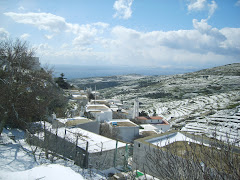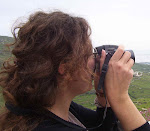
Dear Colleague,
The Province of East-Flanders, the Flanders Marine Institute, the Flemish Heritage Institute, Stony Brook University, NY, and the Ename Center for Public Archaeology and Heritage Presentation, are pleased to announce a first call for papers for the:
5th Annual Ename International Colloquium
To be held 18th - 20th March 2009 in Ghent and Ostend, Belgium
CLIMATES OF HERITAGE CONSERVATION:
Responding to the Challenge of Global Climate Change through Public Engagement and Social Innovation
Since 2005, UNESCO has been challenging cultural heritage organizations to take account of global climate change in their conservation mission as well as their methods. In particular, UNESCO has encouraged such organizations to work more closely with ecological organizations and also to assume a greater level of activism toward the public.
These recommendations dovetail with the accepted international approach to involve the community in a sustainable heritage conservation and presentation policy as they are formulated in guidelines and charters such as the Faro Convention of the Council of Europe or the ICOMOS Ename Charter.
What is not clear however, is how the issue of Global Climate Change affects the wider contexts and settings that are part of a long-term heritage conservation programme or the public awareness and engagement regarding heritage. Some organizations may find their level of effectiveness reduced as they attempt to take on tasks that lie beyond their expertise. Others will find new forms of public engagement and garner greater public support for their work.
While the impacts of Global Climate Change are several, this three-day colloquium will focus on those of immediate and obvious significance to the Low Countries, namely rising sea levels and increased river flooding. Papers presented will provide comparative experiences from diverse nations in all the world’s regions that are subject to these threats as they impact cultural heritage. It is understood that cultural heritage here refers not simply to monumental sites or cultural landscapes, but also to the intangible heritage that is so much at risk. Among the questions to be asked are the following:
-What have been the experiences with cultural sites or landscapes in diverse settings with rising sea levels and/or river flooding?
-What have been the responses of cultural heritage organizations and how have they coordinated with other organizations active in the defense or relief effort?
-Can heritage conservation and interpretation programmes learn from ecological approaches and vice versa or is there a danger that cultural heritage preservation will become subsumed by the attention given to ecological conservation?
-In what way does Global Climate Change alter heritage conservation programmes or how does it affect the interpretation and presentation of cultural heritage sites?
-How can cultural heritage professionals respond pro-actively to the global threat of climate change?
-What does it mean for heritage organizations to engage in broader social advocacy in the light of Global Climate Change?
-Is Global Climate Change only a threat for heritage conservation policies or does it also provide new opportunities?
We are therefore seeking innovative contributions from heritage administrators, archaeologists, historians, cultural economists, educators, cultural policy specialists and practitioners under the following four topics:
1. Actual Site Impacts and Predictions due to Global Climate Change
2. Attitudes and Responses from heritage organizations towards Global Climate Change
3. Climate Change, Cultural Tourism, and Development
4. Widening Public Engagement and Forging Organizational Alliances
Abstracts for poster presentations, short papers (10 min.) and research papers (20 min.) on these themes will be accepted until 15 January 2009. They should be a maximum of 300 words, in English, sent either by fax to +32-55-303-519 or by email to Willem Derde at colloquium@enamecenter.org. Authors should include full contact information (name, institutional affiliation, mailing address, phone, fax and e-mail address).
Notification of acceptance will be sent by 1 February 2009.
For questions or requests for additional information, please visit our website www.enamecenter.org or contact Eva Roels at eva.roels@enamecenter.org.




.jpg)




























Δεν υπάρχουν σχόλια:
Δημοσίευση σχολίου